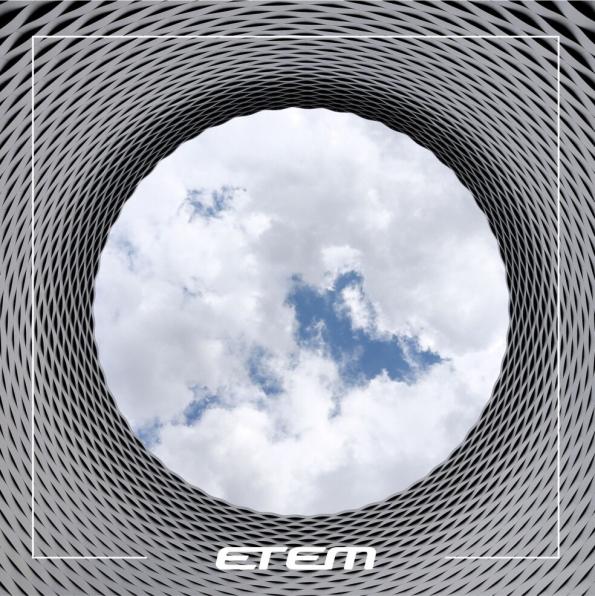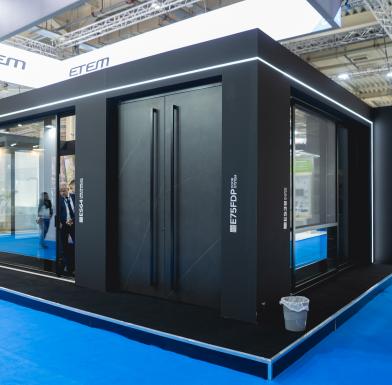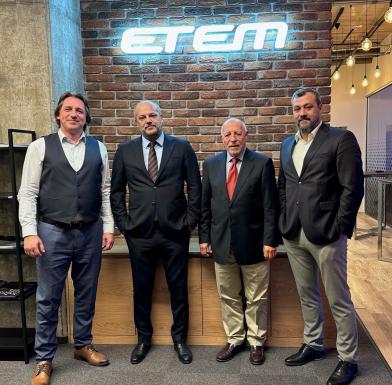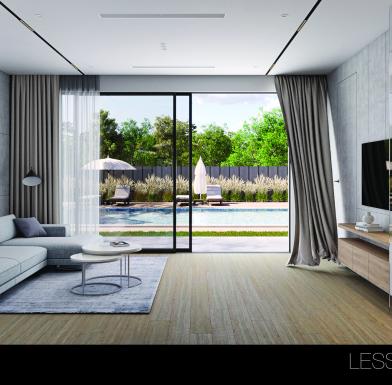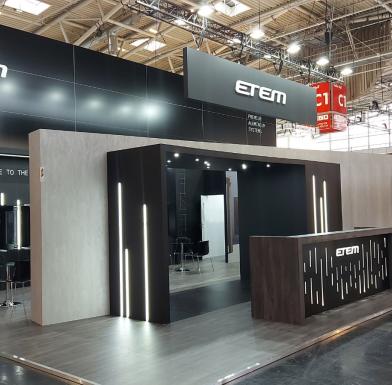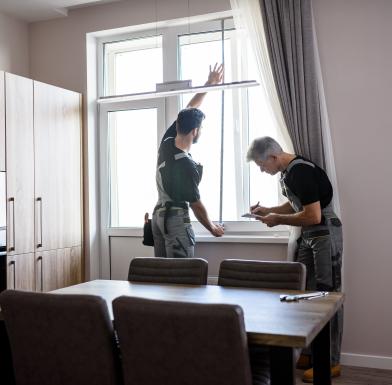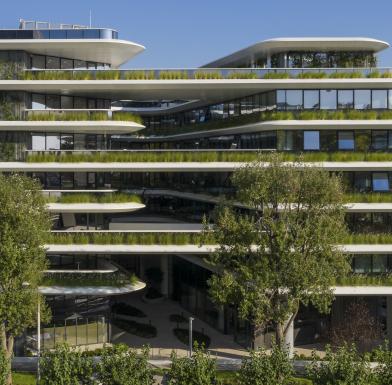WE ASKED 5 ARCHITECTS TO ENTER THE ROLE OF THE PROPHET AND TO DESCRIBE THE TOWN OF THE FUTURE IN 50 YEARS
RYAN NEIHEISER AND CHRISTINA ARGYROU FROM NEIHEISER ARGYROS
The future is unpredictable and multiple. The constant onslaught of ecological, political, economic, and humanitarian crises has left us all exhausted, defensive, and even indifferent. However, as architects, we must constantly find energy for optimism. Architectural composition is by nature a promising endeavor. It, therefore, requires us to imagine the future, to move forward, to critique the already existing and to dare to suggest something better. For us, despite the overwhelming news we hear every day, the promise of the future lies in the constant connection between local and global, between individual and community. During the pandemic, as we all sit separately in our living rooms, gazing at the many different websites that spread across the internet, through screens and dysfunctional internet connections, one realizes how we all share a global network, a common space of collectivity. The "local" withthe "global" converge into one, and against all odds, the community persists and evolves. Architecture, placed in a specific context, adapted to the clutter of individual life, involved in the flow of world capital, and recklessly trying to capture the whole of human experience, may emerge as the most appropriate new medium for change, a new policy framework turmoil, community building, and ecological appropriation.
PAVEL YANEV FROM ALL IN STUDIO
Certainly, buildings and designs will be more energy independent, self-sustaining, and built with new materials. I sincerely hope the technology can begin to enter faster in our industry as it is one of the "slow" in relation to the sector. I really hope that someone will invent teleportation so that we don't have to travel for hours to reach the workplace blocked in traffic jams.
PHILLIPPE FOUCHÉ FROM SAOTA ARCHITECTURE & DESIGN
There is an interesting saying that it is easier for a person to be a prophet outside their own village. I am from Cape Town, from the southern part of South Africa, which is a relatively small town, and with my team, we have the privilege of being able to take on the role of "prophets" by looking at the big cities abroad and getting inspired. I am not an expert on urbanism and it is difficult for me to predict what technology can bring us in the future. But if I have to guess, I think cities of the future will be different ecosystems that allow nature to function within them. This will restore balance in the environment.
DANIEL BOSIA FROM THORNTON TOMASETTI
Indeed, the strong character of our effort to incorporate more engineering into everything we do, into everything we build, is a modern fundamental factor. Therefore, through technology, through investment in tools and methods of construction and design, we must be able to create structures and buildings that have zero carbon footprint and have no negative impact on the environment in which we live. We need to look for ways to make the most of the environment instead of protecting ourselves from it. We are looking for ways to use the wind, the sun, and other natural elements to generate energy to create energy-efficient buildings. The "market" also tends to separate skills and divide professional specialties in construction. We work in structure & construction so we have a structural engineer. Do we have a facade and therefore have a facade engineer? At the same time, we have an architect and we try to combine all these elements. But I think in the future there will be a much more integrated approach to design, which will lead to a much more efficient method of manufacturing, designing, and minimizing the materials used.
MIRON MUTYABA from ZAHA HADID ARCHITECTS
What is being observed is that cities are becoming more interconnected. More and more modern technologies are being used to make cities of the future "smarter". I believe this is the trend of the future - having smarter and more sustainable cities.
